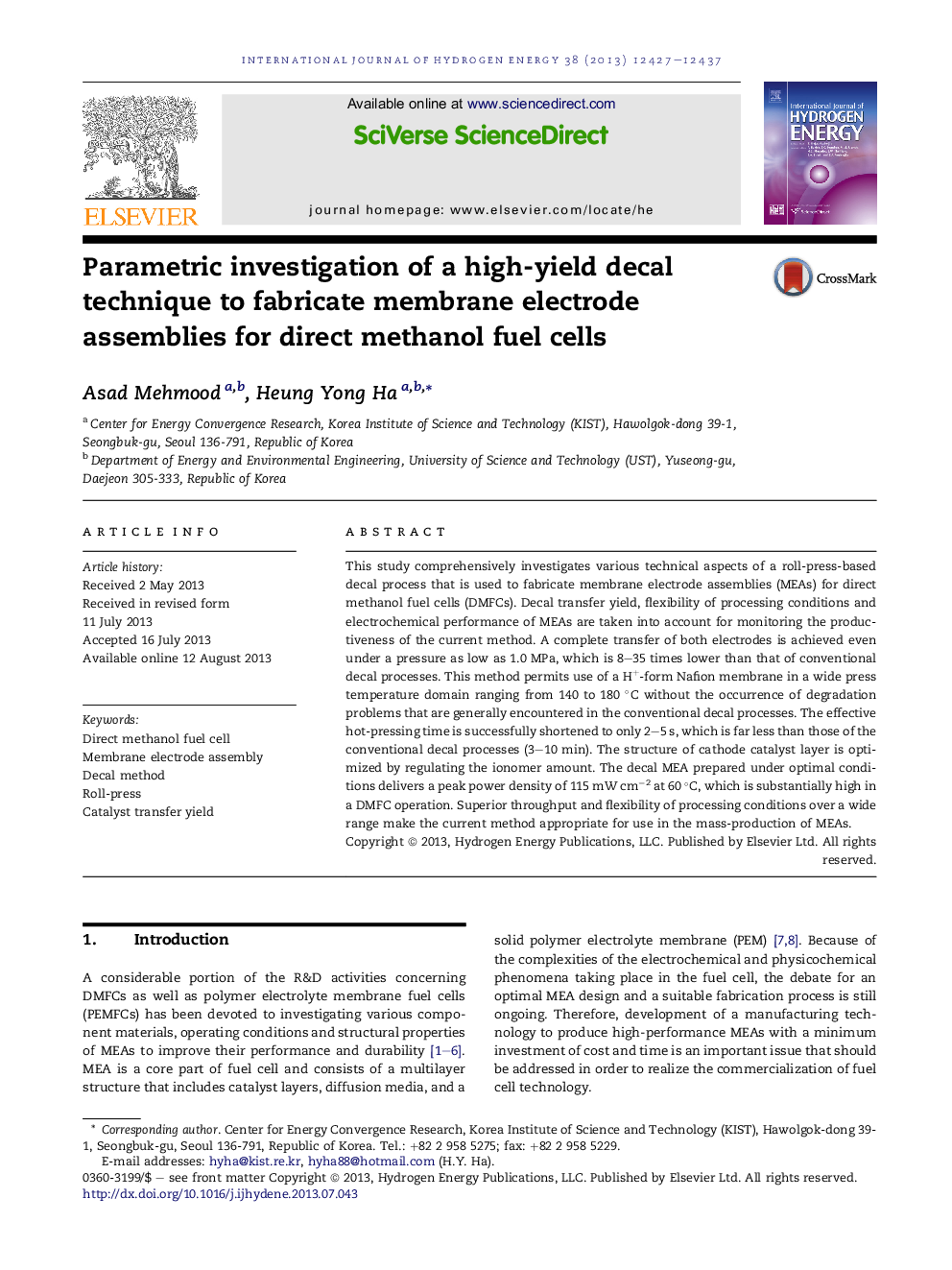| Article ID | Journal | Published Year | Pages | File Type |
|---|---|---|---|---|
| 1281472 | International Journal of Hydrogen Energy | 2013 | 11 Pages |
•Various technical aspects of a roll-press-based decal method are investigated.•An excellent catalyst transfer yield is achieved under pressure as low as 1.0 MPa.•This method has shortened effective hot-pressing time to only few seconds.•Nafion membranes can be hot-pressed in H+-form upto 180 °C without any degradation.•Roll-press design is adequate for making MEAs in a continuous production mode.
This study comprehensively investigates various technical aspects of a roll-press-based decal process that is used to fabricate membrane electrode assemblies (MEAs) for direct methanol fuel cells (DMFCs). Decal transfer yield, flexibility of processing conditions and electrochemical performance of MEAs are taken into account for monitoring the productiveness of the current method. A complete transfer of both electrodes is achieved even under a pressure as low as 1.0 MPa, which is 8–35 times lower than that of conventional decal processes. This method permits use of a H+-form Nafion membrane in a wide press temperature domain ranging from 140 to 180 °C without the occurrence of degradation problems that are generally encountered in the conventional decal processes. The effective hot-pressing time is successfully shortened to only 2–5 s, which is far less than those of the conventional decal processes (3–10 min). The structure of cathode catalyst layer is optimized by regulating the ionomer amount. The decal MEA prepared under optimal conditions delivers a peak power density of 115 mW cm−2 at 60 °C, which is substantially high in a DMFC operation. Superior throughput and flexibility of processing conditions over a wide range make the current method appropriate for use in the mass-production of MEAs.
